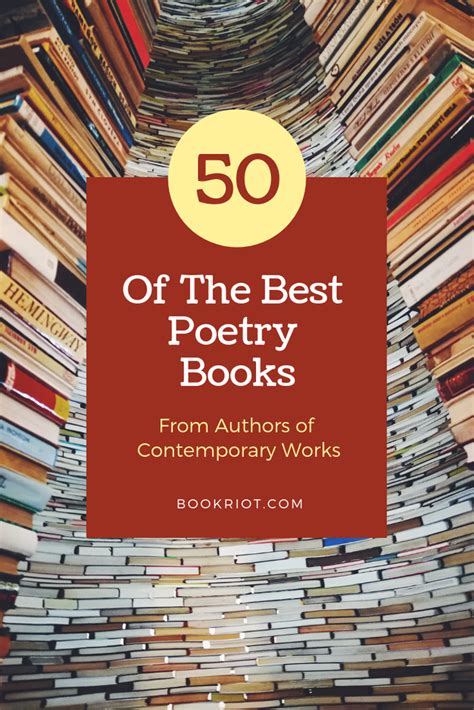The realm of poetry is a vast and wondrous place, filled with intricate meanings, subtle nuances, and profound insights. For those who delve into the world of poetry books, the experience can be nothing short of transformative. However, with so many great works out there, it can be daunting to decide where to start. In this article, we’ll embark on a journey to decode the magic of poetry books, exploring the top picks that have captured the hearts of readers and critics alike.
The Timeless Appeal of Poetry
Poetry has a way of transcending time and circumstance, speaking to fundamental aspects of the human experience. Whether it’s the sonnets of Shakespeare, the odes of Keats, or the free verse of modern poets, the art form has a unique ability to evoke emotions, spark imagination, and challenge perspectives. So, what makes a poetry book truly great? Is it the technical skill of the poet, the originality of their voice, or the way their words seem to resonate deep within our souls?
Top Picks: A Diverse Range of Voices
In compiling our list of top poetry book picks, we’ve aimed to showcase a diverse range of voices, styles, and themes. From classic works that have stood the test of time to contemporary collections that push the boundaries of language and form, our selections are designed to inspire, provoke, and delight.
- The Collected Works of Emily Dickinson: This comprehensive collection of Dickinson’s poetry is a must-read for anyone interested in the art form. With its innovative structure, enigmatic imagery, and profound exploration of themes such as death, love, and nature, Dickinson’s work continues to captivate readers to this day.
- The Waste Land by T.S. Eliot: Regarded by many as the greatest poem of the 20th century, “The Waste Land” is a modernist masterpiece that defies easy summary. A rich tapestry of allusions, imagery, and symbolism, this work is a testament to Eliot’s groundbreaking vision and technical skill.
- The Sun and Her Flowers by Rupi Kaur: This bestselling collection of poetry and prose has become a cultural phenomenon, speaking to a new generation of readers who are hungry for authenticity, vulnerability, and empowerment. Kaur’s work is a powerful exploration of themes such as identity, trauma, and healing.
- Citizen: An American Lyric by Claudia Rankine: This genre-bending work is a powerful exploration of racism, identity, and belonging in America. Through a combination of poetry, essays, and imagery, Rankine creates a nuanced and unflinching portrait of a nation in crisis.
- Bright Dead Things by Ada Limón: This critically acclaimed collection is a stunning example of contemporary poetry’s ability to capture the complexities of modern life. With its innovative use of language, form, and imagery, Limón’s work is a must-read for anyone interested in the cutting edge of poetic expression.
The Art of Reading Poetry
So, how do we approach the task of reading poetry? For many of us, the experience can be intimidating, especially when confronted with complex language, obscure references, or unconventional forms. However, the key to unlocking the secrets of poetry lies not in deciphering every line or image, but in allowing oneself to be fully present in the experience.
When reading poetry, it's essential to approach the text with an open mind and a willingness to engage with the unknown. Don't be afraid to slow down, to pause, or to reflect on the words and images that resonate with you. Remember, poetry is not just about understanding – it's about feeling, intuiting, and connecting with the deeper currents of human experience.
The Power of Poetry in Everyday Life
But what about the practical applications of poetry? How can this ancient art form intersect with our daily lives, influencing the way we think, feel, and interact with the world around us? The answer lies in poetry’s unique ability to inspire creativity, foster empathy, and challenge our assumptions.
| Poetry's Benefits | Examples |
|---|---|
| Improved cognitive function | Enhanced memory, concentration, and problem-solving skills |
| Emotional intelligence and well-being | Increased self-awareness, empathy, and stress relief |
| Creative expression and inspiration | Writing, art, music, and other forms of creative endeavors |

Conclusion: The Enduring Power of Poetry
As we conclude our journey into the world of poetry books, we’re reminded of the art form’s enduring power to captivate, inspire, and transform us. Whether you’re a seasoned poetry enthusiast or just starting to explore the world of verse, we hope this article has provided a compelling introduction to the magic and mystery of poetry.
Poetry has the ability to touch our hearts, challenge our minds, and inspire our creativity. By embracing this ancient art form, we can cultivate a deeper understanding of ourselves and the world around us, and discover new ways to express, connect, and thrive.
FAQs
What makes a poetry book great?
+A great poetry book is one that resonates with readers, offering a unique perspective, technical skill, and emotional resonance. The best poetry books are those that leave a lasting impression, challenging our assumptions and inspiring new ways of thinking and feeling.
How do I get started with reading poetry?
+Start by exploring different types of poetry, from classic sonnets to modern free verse. Read slowly, allowing yourself to absorb the language, imagery, and themes. Don’t be afraid to look up unfamiliar words or references, and take time to reflect on the poems that resonate with you.
Can poetry be a form of therapy?
+Yes, poetry can be a powerful tool for healing and self-expression. Through the process of writing or reading poetry, individuals can tap into their emotions, process challenging experiences, and cultivate a greater sense of empathy and understanding.



